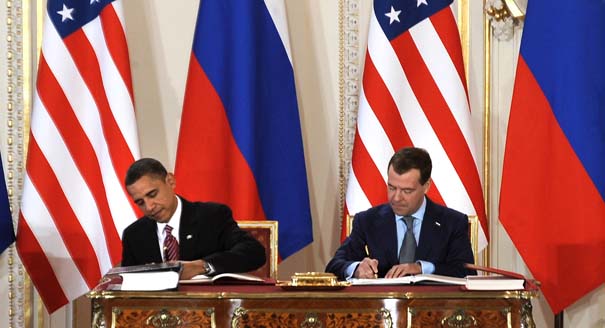July 2011 marks two years since the creation of the U.S.-Russia Bilateral Presidential Commission (BPC), a critical framework for managing U.S.-Russian cooperation across multiple areas in the wake of the 2009 “reset.” Now with more than 20 working groups bringing together dozens of interagency stakeholders, the BPC has enabled effective cooperation on a broad bilateral agenda, ranging from nuclear arms control and nonproliferation to exchange programs, and from disaster response to prison reform. Yet there is still a real risk that successful U.S.-Russian cooperation could derail as it has in the past—especially in light of ongoing budgetary pressures, serious outstanding disagreements on security issues, and upcoming elections in both countries.
The best mechanism to ensure continued success in managing U.S.-Russian relations is to endow the BPC with the structure and resources it needs to become an enduring foundation for intergovernmental and societal cooperation. Now is also the time to undertake a critical reevaluation of U.S. assistance programs for Russia, in light of the Russian government’s clear message that, while it values cooperation, it has outgrown its role as an “assistance recipient.” Fortunately, the BPC offers an ideal vehicle to re-channel important programs for bilateral engagement, and with additional resources the commission and its working groups can provide much-needed oversight to ensure that resources are spent most effectively. The following measures should be undertaken to begin the process of reforming and strengthening the BPC:
- Create a BPC secretariat led by a senior official and empowered to coordinate all BPC funds and activities, with staff based at the U.S. Department of State and at the U.S. Embassy in Moscow;
- Conduct a comprehensive census of all current funding allocated for U.S. government work in and with Russia to facilitate a transition from foreign assistance–based interaction to that of cooperative engagement;
- Allocate monies previously dedicated to assistance to the BPC secretariat to support current cooperative work and to provide seed funding for future programs;
- Clearly define the roles of all government agencies participating in BPC working groups, and offer an explicit mechanism for nongovernmental stakeholders to become and remain involved; and
- Retain the BPC’s focus on results, minimal reporting and paperwork burdens, and flexible approach to working group meetings, including the use of technology to facilitate informal contacts.
Through the accomplishments of the BPC and its working groups, the United States and Russia have made a promising beginning. Now it is time to cement these frameworks into a solid foundation for future success by endowing the BPC with the resources it needs to withstand the challenges that lie ahead.





